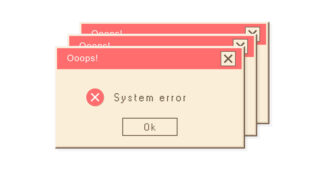The first image that comes to many people’s minds when they hear the words ‘lesson observation’ is a variation on Jaws, complete with ominous theme music. Even the most experienced teachers show a detectable edge of nerves. Lesson observations do provide useful insights for improving practice, but the stressful, formal once-a-term snapshot isn’t an accurate gauge of quality and clearly needs a rethink.
In that context, we’re pleased that our lower-stakes approach has positively impacted on pupil engagement and teacher development. More than that, our focus on small adjustments has given teachers more autonomy and recast lesson observations in a more positive light. Here are three key insights from our experience of bringing about that important change.
Upside down
Lesson observations typically focus too much on teaching and not enough on learning, and it’s this emphasis that can lead teachers to feel nervous and reluctant when it’s ‘their turn’. But knowing what went well and what didn’t in a lesson and the impact this had on pupils’ learning is mission critical to school improvement, so we turned lesson observation on its head by focussing on student learning behaviours rather than teaching practice.
We encourage our teachers to identify students’ ‘small tells,’ the finer details that can get sometimes get overlooked mid-teaching flow. Every class has its share of ‘influencers’ who can, sometimes inadvertently, dictate the overall behaviour and mood of a lesson. Small tells like body language can reflect how engaged everyone is, and reflecting on them can help teachers maximise learning.
Inside out
Lesson observations have a bad rap when they focus solely on the parts that went wrong. It’s just as important to focus on when things go right as they are both sides of the same coin. Building on your strengths (and the confidence that comes from having them acknowledged) are crucial to develop teachers’ will to improve and their understanding of how to do it, continually and practically.
In addition, infrequent feedback is often more intense, overloading teachers with a list of things to change all at once. We encourage our teachers to take an active role in reviewing how their lesson went and to do so regularly. To that end, we have brought in Onvu video technology to help staff self-reflect more easily and to identify the small, critical improvements it’s in their gift to make. The camera technology is always available to them and they can choose to review footage by themselves or with the guidance of colleagues.
We focus on students’ learning rather than teaching practice
One teacher thought her class understood a complex maths problem, only to find when they submitted the work that not everyone had. Reviewing the footage helped her identify where in the lesson the disconnect had happened between how she thought she had taught the problem and how it had been understood. She could then make the necessary adjustments.
Having the time and space to reflect on how a particular lesson went was always a challenge, but capturing footage makes the process easier, quicker and more objective. Indeed, contrary to some concerns, the technology has been well received by our staff.
Round and round
Avoiding a ‘them and us’ mindset is essential for the lessons learned in any observation to be of value and acted upon. Teachers learn best from other teachers and creating a collegiate approach removes the sense of judgement, instead promoting an environment where everyone learns from everyone else. This helps teachers feel more valued and trusted, and less isolated when faced with classroom challenges.
Here, video technology has also helped. Our teachers share best practice by saving video clips of strategies that have worked well with a particular set of pupils in a shared folder for everyone to access. They hold small, informal sessions to seek different perspectives to help them teach more effectively.
When observations are viewed positively, this creates a chain reaction. Teachers feel safe in their own continuous professional development journeys and pupils flourish because teaching quality improves.
And to do that, we don’t need a bigger boat. We need a smaller lens.















Lesson observations are an inaccurate way of determining teacher performance. I’ve known “outstanding” teachers who pass obs with flying colours. Only to discover they get kids to copy text from the whiteboard in non observed lessons.